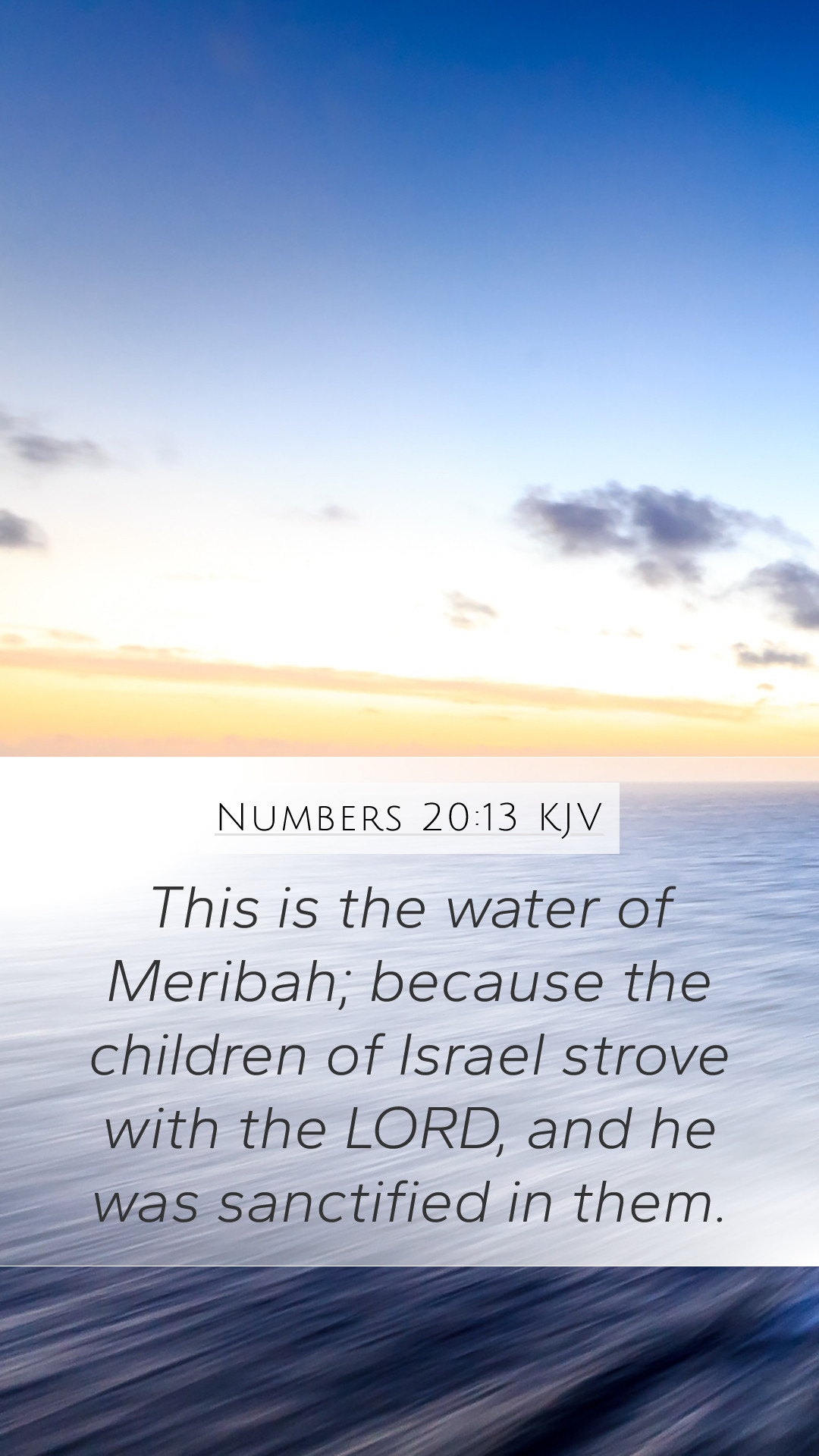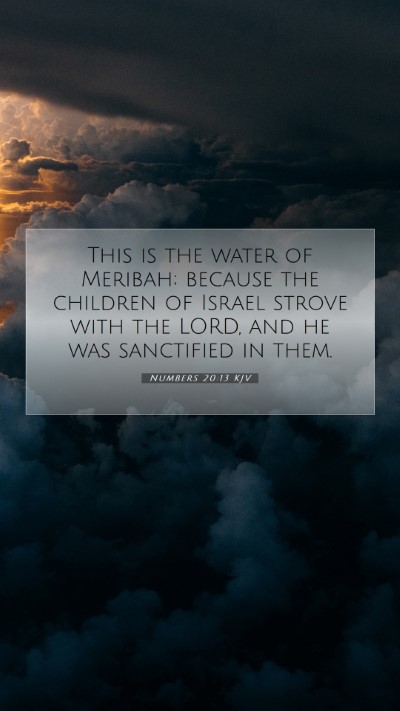Understanding Numbers 20:13
This verse reads: "This is the water of Meribah; because the children of Israel strove with the LORD, and he was sanctified in them."
Bible Verse Interpretation and Meaning
Numbers 20:13 describes a significant event in the history of Israel during their wilderness journey. Here, we find elements central to the covenant relationship between God and His people.
According to Matthew Henry, the verse underscores the gravity of the Israelites' rebellion against God. The name "Meribah" signifies strife or contention, reminding us that contention with God results in severe consequences. The Israelites' complaint about the lack of water exemplifies a recurring theme in their journey, highlighting their lack of faith.
Albert Barnes notes that this incident illustrates God's holiness and His demand for reverence. Even when God's representatives, like Moses, failed to honor Him properly, God remained righteous and upheld His sanctity in the midst of the people's failures. Barnes affirms that God’s actions were a demonstration of His faithfulness to His covenant, even when the people saw fit to challenge His authority.
Adam Clarke adds that this striking moment serves as a lesson in spiritual discipline. It emphasizes the necessity of leadership that aligns with God's directives. Clarke suggests that the chastening of Moses, who was prevented from entering the Promised Land due to his failure to demonstrate God's holiness, can be a reminder that leaders are held to higher standards.
Key Themes in Numbers 20:13
- God's Holiness: The importance of sanctifying God in our midst.
- The Perils of Discontent: The danger that comes with murmuring against God.
- Leadership Accountability: Leaders must reflect God's glory, or they risk severe consequences.
- Rebellion against God: Illustrates the ongoing struggle between divine authority and human frailty.
Application in Daily Life
This verse prompts us to consider how we respond in times of trial. When faced with difficulties, we must maintain our trust in God and avoid the pitfalls of rebellion and discontent. The example of the Israelites serves as a warning to not allow circumstances to dictate our faith in God's provision.
In Bible study groups, this passage can inspire discussions on how to approach trials and the importance of maintaining faith. Participants can reflect on:What does this verse teach us about God’s nature? How can we ensure we sanctify Him in our actions?
Related Bible Cross References
- Exodus 17:1-7: The earlier incident of water from the rock.
- Psalm 106:32-33: A reflection on rebellion during the wilderness journey.
- Hebrews 3:16-19: A New Testament commentary on disobedience in the wilderness.
- Deuteronomy 32:51-52: God’s judgment on Moses for not sanctifying Him.
Conclusion
Numbers 20:13 serves as a profound reminder of God's holiness and the necessary reverence due to Him from His people. Through periods of conflict and testing, we are called to a deeper understanding of our relationship with God, encouraging us to reflect on our attitudes and responses.
As you continue your Bible study, consider how the principles found in this verse can guide your actions and thoughts in daily life. Engaging with Scripture in this way not only enhances your understanding but also deepens your relationship with God.


